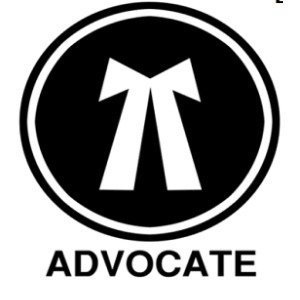Best Project Finance Lawyers in Ramallah
Share your needs with us, get contacted by law firms.
Free. Takes 2 min.
List of the best lawyers in Ramallah, Palestine
About Project Finance Law in Ramallah, Palestine
Project finance is a specialized field of law that involves the financing of large-scale infrastructure and development projects such as energy facilities, transportation networks, water systems, and public-private partnerships. In Ramallah, Palestine, the project finance sector has gained increasing attention due to the growing need for infrastructure development and the involvement of both public and private entities. Project finance typically involves complex structures where the project's revenue stream is used as collateral for the financing, and the risk is distributed across different parties including sponsors, lenders, and government bodies.
Why You May Need a Lawyer
Navigating project finance transactions in Ramallah can be complex. You may require legal assistance in the following situations:
- Drafting or reviewing contracts and finance agreements
- Structuring deals involving multiple parties and significant amounts of capital
- Conducting due diligence to ensure compliance with local regulations
- Negotiating with government entities or foreign investors
- Managing risk allocation and dispute resolution mechanisms
- Handling cross-border transactions or foreign investment challenges
- Addressing issues related to land rights or project approval processes
- Understanding tax implications related to project finance
- Securing permits and authorizations required for large infrastructure projects
A lawyer experienced in project finance can help you avoid costly mistakes, ensure regulatory compliance, and provide strategic advice throughout the lifecycle of your project.
Local Laws Overview
Project finance activities in Ramallah and throughout Palestine are subject to a combination of Palestinian Authority laws, sector-specific regulations, and international norms. Some key legal aspects include:
- Investment Law - Governs foreign and domestic investment, providing incentives and guidelines for project sponsors.
- Public-Private Partnership (PPP) Regulations - Outlines how the government and private sector can cooperate on infrastructure projects.
- Banking and Finance Laws - Regulate the provision of loans, security interests, and payment structures.
- Land and Property Law - Deals with land acquisition, title verification, leasing, and land use regulations crucial for project development.
- Environmental Regulations - Mandate impact assessments and compliance with environmental standards.
- Procurement and Tender Laws - Specify transparent processes for awarding public contracts.
- Dispute Resolution Mechanisms - Provide frameworks for resolving disagreements, often through arbitration or mediation.
It is important to note that legal frameworks can evolve, especially as Palestine continues to attract foreign investment and undertake large infrastructure projects.
Frequently Asked Questions
What is project finance and how does it differ from traditional loans?
Project finance is a method of raising funds for large-scale projects where the project's assets and expected revenue act as collateral. Unlike traditional loans which rely on the borrower's balance sheet, project finance is structured so the borrowing entity is usually a special purpose vehicle (SPV) and lenders have limited recourse to the sponsors.
Are there restrictions on foreign investors participating in project finance in Ramallah?
Yes, while foreign investors are welcome and encouraged, there are regulatory requirements they must meet under Palestinian Investment Law, including registration, minimum capital requirements, and compliance with sector-specific limitations.
What is a Public-Private Partnership (PPP) in Palestine?
A PPP is a cooperative arrangement between public authorities and private companies to finance, build, and operate projects such as infrastructure or public services. Specific regulations outline how these partnerships are structured and managed in Palestine.
How are risks typically allocated among project finance participants?
Risks such as construction, operational, financial, environmental, and political risks are allocated among sponsors, lenders, contractors, and the government based on their ability to manage and mitigate each type of risk. Proper legal structuring is essential to achieve fair risk distribution.
Is it necessary to establish a special purpose vehicle (SPV) for a project finance transaction?
Most project finance structures involve forming an SPV, which is a separate legal entity created for the project. This helps ring-fence the project's assets and liabilities from those of the project sponsors.
What kind of permits and approvals are required for project finance deals in Ramallah?
Depending on the project type, you may need permits related to land use, environmental impact, planning, sector-specific operation licenses, and registration with government authorities.
How do lenders secure their interests in project finance transactions?
Lenders often require security over the project’s assets, rights under key contracts, and assignment of revenues. Legal documents will define the extent of recourse lenders have if the project faces difficulties.
What is the main legislation governing project finance in Palestine?
Project finance in Palestine is governed by a combination of the Investment Promotion Law, Companies Law, Banking Law, PPP regulations, and sector-specific laws depending on the nature of the project.
Can disputes in project finance projects be resolved through arbitration?
Yes, many project finance contracts include arbitration clauses, and Palestinian law recognizes arbitration as an alternative dispute resolution method. It can be a faster and more confidential way to settle disagreements.
Are there tax incentives for project finance investments in Ramallah?
Yes, the Palestinian Investment Promotion Law and various regulations offer tax incentives and exemptions, especially for projects in key economic sectors or those that contribute to national development priorities.
Additional Resources
Here are some useful organizations and resources for those seeking guidance in project finance in Ramallah, Palestine:
- Palestinian Capital Market Authority (PMCA) - Regulates financial markets, including project finance transactions.
- Palestinian Investment Promotion Agency (PIPA) - Supports and facilitates investment processes, providing guidelines and incentives.
- Palestine Monetary Authority (PMA) - Oversees banking and financial institutions involved in project finance.
- Palestinian Ministry of Finance - Offers regulatory information on PPPs, taxation, and public investment programs.
- Local Chambers of Commerce and Industry - Useful for networking, local regulations, and business support.
- Legal aid clinics and local law firms specializing in corporate and project finance law.
Next Steps
If you are considering a project finance transaction in Ramallah or anywhere in Palestine, here are the recommended steps:
- Consult with an experienced project finance lawyer who understands local and international law.
- Perform preliminary due diligence on the project, including land rights, environmental compliance, and potential legal hurdles.
- Develop a clear understanding of your financing options, incentives, and possible risks.
- Ensure all agreements and contracts are reviewed and drafted to protect your interests.
- Register your venture and obtain all necessary permits and approvals from relevant authorities.
- Consider engaging with accountants and technical experts to support financial and operational planning.
By taking these steps and seeking professional legal advice, you can navigate the legal complexities of project finance, protect your investment, and increase the chances of success for your project in Ramallah, Palestine.
Lawzana helps you find the best lawyers and law firms in Ramallah through a curated and pre-screened list of qualified legal professionals. Our platform offers rankings and detailed profiles of attorneys and law firms, allowing you to compare based on practice areas, including Project Finance, experience, and client feedback.
Each profile includes a description of the firm's areas of practice, client reviews, team members and partners, year of establishment, spoken languages, office locations, contact information, social media presence, and any published articles or resources. Most firms on our platform speak English and are experienced in both local and international legal matters.
Get a quote from top-rated law firms in Ramallah, Palestine — quickly, securely, and without unnecessary hassle.
Disclaimer:
The information provided on this page is for general informational purposes only and does not constitute legal advice. While we strive to ensure the accuracy and relevance of the content, legal information may change over time, and interpretations of the law can vary. You should always consult with a qualified legal professional for advice specific to your situation.
We disclaim all liability for actions taken or not taken based on the content of this page. If you believe any information is incorrect or outdated, please contact us, and we will review and update it where appropriate.













